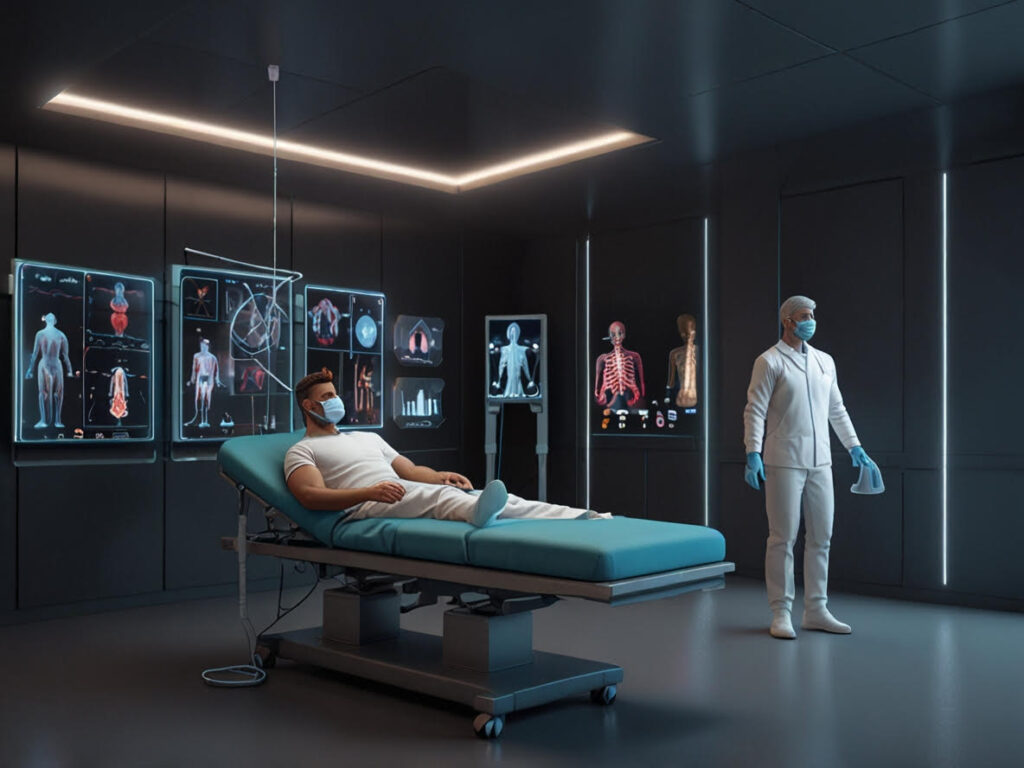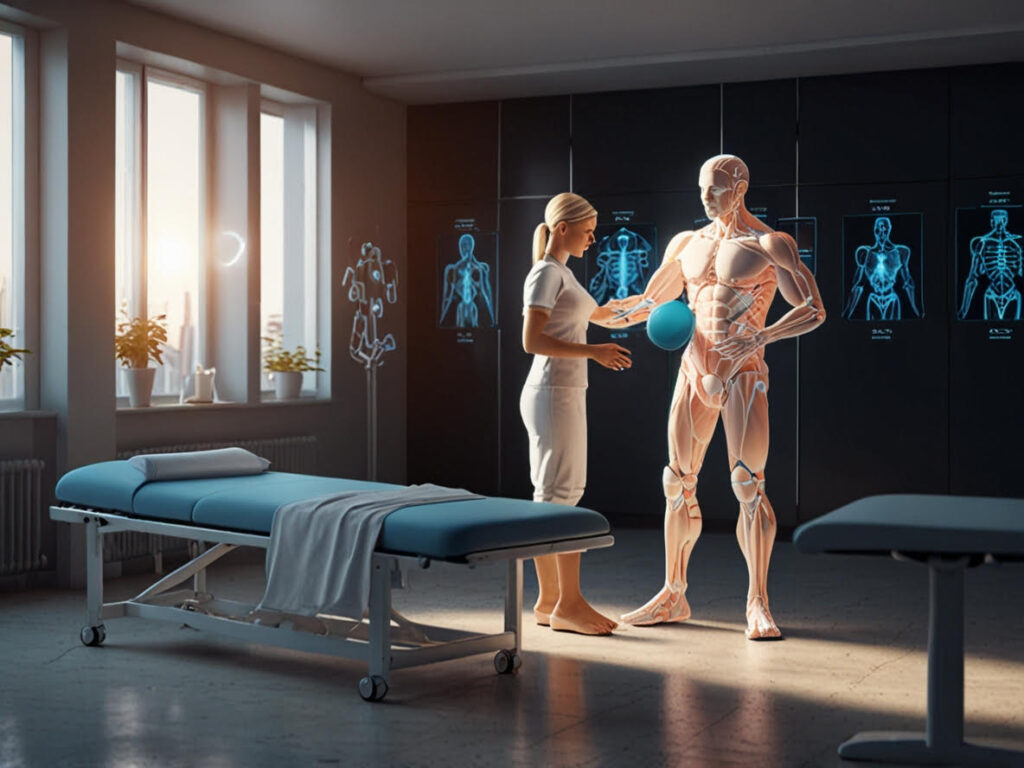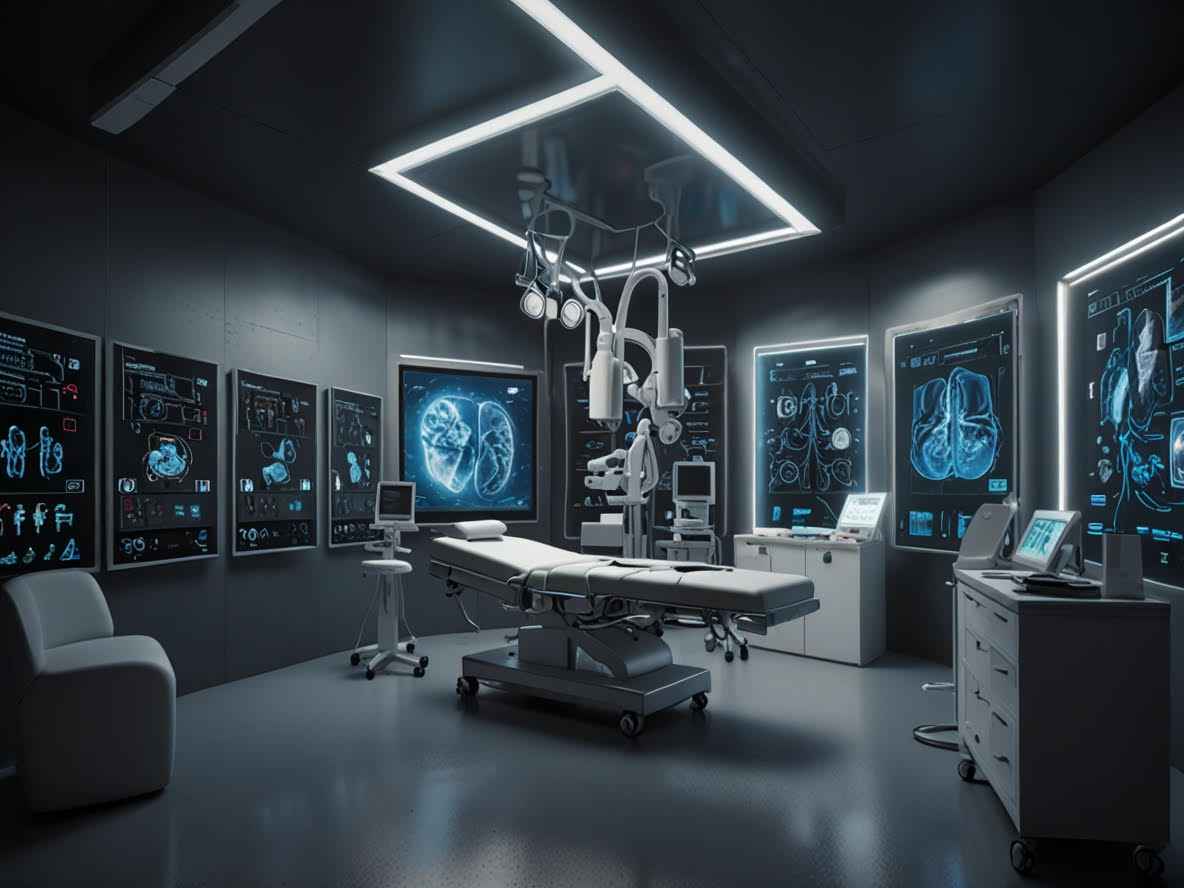- Introduction
- Medical Education in the Metaverse
- Patient and Doctor Experience in the Metaverse
- Physiotherapy Sessions in the Metaverse
- Benefits of Medical Education in the Metaverse
- Access to Extensive Educational Resources
- Medical Awareness and Disease Prevention in the Metaverse
- Conclusion
Introduction
With the advent of cutting-edge technologies like Virtual Reality (VR), Augmented Reality (AR), and Artificial Intelligence (AI), the metaverse has emerged as a revolutionary platform attracting considerable attention. This multifaceted digital realm introduces groundbreaking capabilities across various sectors, including gaming, advertising, commerce, events, entertainment, social interactions, and notably, medicine. The metaverse holds immense potential as a powerful tool for medical education, healthcare services, and related fields. For instance, it enables medical students to engage in interactive and realistic practice of surgical and therapeutic skills within simulated environments, eliminating the need for physical presence in labs and hospitals. Ultimately, this leads to enhanced quality in medical services, education, and healthcare systems.
Medical Education in the Metaverse
The metaverse promises to play a pivotal role in transforming medical education. By leveraging VR and AR technologies, medical students gain access to advanced simulations of surgical procedures and medical practices, offering a unique and immersive learning experience. These simulations help students hone their skills and understanding in a risk-free environment. Additionally, the metaverse facilitates international workshops and training sessions, allowing participants to engage without the constraints of physical presence or geographical boundaries.

Patient and Doctor Experience in the Metaverse
The metaverse creates an innovative environment for patient-doctor interactions, enabling consultations and follow-ups without the need for physical visits. Patients can communicate with their doctors, ask questions, and receive medical advice, which is especially beneficial for those facing geographical or mobility challenges. This virtual interaction not only enhances patient access to healthcare but also offers new revenue streams for medical professionals. Furthermore, AI integration ensures round-the-clock availability, while psychologists can offer counseling sessions in a secure and comfortable virtual setting.
Physiotherapy Sessions in the Metaverse
Physiotherapists can conduct therapy sessions within the metaverse, utilizing either live online sessions or pre-recorded videos. This approach is particularly appealing and effective for elderly patients or those with mobility issues, as it eliminates the need for travel and reduces costs. Virtual environments, enriched with engaging graphics, provide precise and interactive training on correct physiotherapy techniques and exercises, ensuring patients can undergo treatment at their convenience.
Benefits of Medical Education in the Metaverse
The metaverse offers numerous advantages for medical education. Students can practice in risk-free, simulated 3D environments, enhancing their skills and comprehension of complex anatomical concepts. This immersive learning environment fosters greater engagement in workshops and educational sessions, promoting a deeper understanding of medical practices.

Access to Extensive Educational Resources
Through the metaverse, students and professionals can access a vast array of advanced educational resources. Participation in global workshops, seminars, and conferences becomes feasible, allowing attendees to gain insights and knowledge from experts worldwide, thereby broadening their educational horizons.
Medical Awareness and Disease Prevention in the Metaverse
The interactive nature of the metaverse provides unparalleled opportunities to raise public awareness about health and wellness. It facilitates the dissemination of information on healthy living, proper nutrition, and disease prevention in an engaging and visually appealing manner. Complex medical concepts can be simplified and presented interactively, making them accessible to a broader audience, including children. The metaverse can host a wealth of educational materials, such as scientific articles, instructional videos, and health guides, offering a novel and effective approach to public health education. Moreover, it serves as a dynamic platform for health-related advertising, embedding medical content and health tips into games and other suitable environments.
Conclusion
In summary, the metaverse’s vast potential can significantly benefit medical, healthcare, and wellness sectors. By harnessing technological advancements, it can reduce costs, eliminate barriers, and enhance the efficiency and effectiveness of medical services. This, in turn, improves the quality of life and expands access to healthcare globally. While some resistance from the medical community may arise, the practical applications of the metaverse can help mitigate these concerns, paving the way for its broader acceptance and integration.
Table of Contents
Toggle


One Response